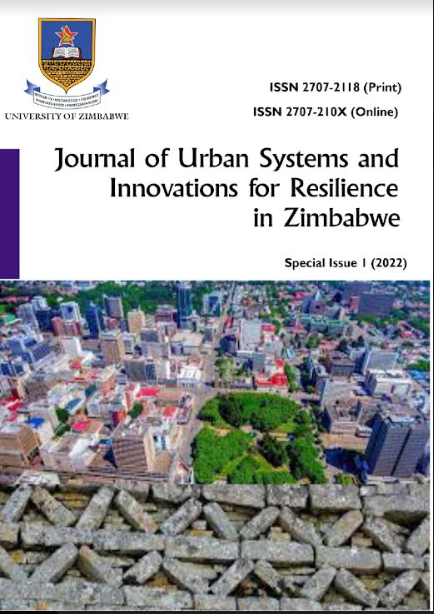Evolution of Urban Food Markets in Zimbabwe and Strategies for Enhancing their Contribution to Urban Resilience
Keywords:
Informal sector, urban food market, market regulation, urban resilience, market actorsAbstract
Food markets in Zimbabwe’s urban areas have evolved in several ways. There have been changes in the types of markets, players in the food markets, and local and market-level functions. While markets operate under the Departments of Housing and Community Services or Social Services, this department works closely with other council departments to ensure the functionality of food markets. The allocation of trading spaces at markets to marginalised residents such as widows, the aged and urban poor is changing as employed, non-poor residents and the unemployed are also seeking trading spaces. Market management functions now involve traders’ associations or committees with direct or daily council involvement receding to strategic functions. The roles of local authorities in terms of identifying traders, regulating trading activities, providing infrastructure, and maintaining markets are shifting, pointing to the need for dynamic policy-making. The article discusses the findings of a study on the state of urban food markets in 10 local authorities in Zimbabwe. A mixed-methods approach was adopted for the study in a two-stage assessment process. Stage One involved the collection of information on the state of food markets in all local authorities in Zimbabwe focusing on each council area’s main market. Stage Two was administering questionnaires at 10 markets in 10 local authorities to traders and customers accompanied by key informant interviews (KIIs). The article examines factors affecting urban food markets’ contribution to urban resilience in Zimbabwe. It contributes to a transformative approach to facilitating them as socio-economic hubs.




